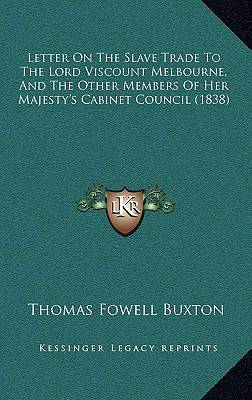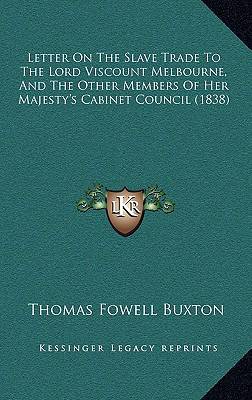
- Afhalen na 1 uur in een winkel met voorraad
- Gratis thuislevering in België vanaf € 30
- Ruim aanbod met 7 miljoen producten
- Afhalen na 1 uur in een winkel met voorraad
- Gratis thuislevering in België vanaf € 30
- Ruim aanbod met 7 miljoen producten
Zoeken
Letter On The Slave Trade To The Lord Viscount Melbourne, And The Other Members Of Her Majesty's Cabinet Council (1838)
Thomas Fowell Buxton
Paperback | Engels
€ 37,95
+ 75 punten
Uitvoering
Omschrijving
Letter On The Slave Trade To The Lord Viscount Melbourne, And The Other Members Of Her Majesty�������s Cabinet Council (1838) is a written work by Thomas Fowell Buxton, a British politician and philanthropist who was a prominent figure in the abolitionist movement. The book is a letter addressed to the Lord Viscount Melbourne and the other members of Her Majesty's Cabinet Council, urging them to take action to end the slave trade. Buxton argues that the slave trade is a moral and economic evil that must be abolished, and he presents evidence to support his case. He also provides recommendations for how the government can take action to end the trade, including the use of diplomatic pressure and the establishment of anti-slavery treaties with other nations. The book is an important historical document that sheds light on the attitudes and beliefs of abolitionists in the 19th century, and it remains relevant today as a reminder of the ongoing struggle for human rights and social justice.This scarce antiquarian book is a facsimile reprint of the old original and may contain some imperfections such as library marks and notations. Because we believe this work is culturally important, we have made it available as part of our commitment for protecting, preserving, and promoting the world's literature in affordable, high quality, modern editions, that are true to their original work.
Specificaties
Betrokkenen
- Auteur(s):
- Uitgeverij:
Inhoud
- Aantal bladzijden:
- 234
- Taal:
- Engels
Eigenschappen
- Productcode (EAN):
- 9781165537556
- Verschijningsdatum:
- 10/09/2010
- Uitvoering:
- Paperback
- Formaat:
- Trade paperback (VS)
- Afmetingen:
- 152 mm x 229 mm
- Gewicht:
- 317 g

Alleen bij Standaard Boekhandel
+ 75 punten op je klantenkaart van Standaard Boekhandel
Beoordelingen
We publiceren alleen reviews die voldoen aan de voorwaarden voor reviews. Bekijk onze voorwaarden voor reviews.











